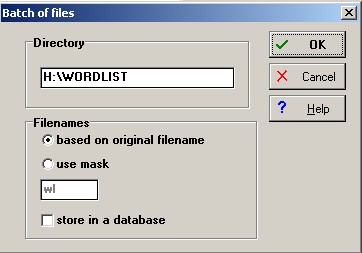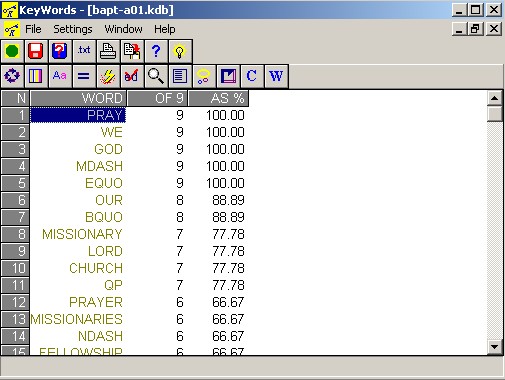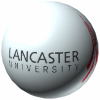Finding Key Keywords
and their Associates
So far we have looked at the entire Baptist corpus. What if one of our keywords appears 50 times in one of the newsletters, but never in the others?
To check for this we need to look at the dispersion of the Baptist words to see which
ones are key across a wide range of texts. In WordSmith, such words are called "key-key-words".
Identifying key keywords requires making a set, or "batch", of wordlists, one for each of
the Baptist newsletters.
- Close down the previous keywords window.
- Go back to Tools controller and choose [File]-- [Choose texts].
- Clear the previous files and choose all 9 Baptist corpus files again.
- Go to the Wordlist. Press the Start button.
- This time, click on [Make a batch now].
- The dialogue box below pops up.
Type in your network drive (H:) and click on "based on original filename" and press [OK].
This will create 9 different wordlists, one for each file, in your H: drive.

- Now close the Wordlist tool, and open the Keywords tool.
- DON'T CLICK THE GREEN BUTTON THIS TIME BUT INSTEAD select [File] -- [New database].
- Choose the nine wordlists just created "bapt-a01.lst" through to "bapt-i09.lst" on the left
box and choose the FLOB list on the right. Click on [OK].
- Type in the same network directory and click on "based on original filename" and press [OK].
The file "bapt-a01.kdb" will be created.
- Choose [File] -- [Open a database], select "bapt-a01.kdb" and press [OK].
You should get a window like the one illustrated below.

- Which words are key in more than half of the Baptist newsletters?
- Select the word "PRAY" and click on
 and see what happens. and see what happens.
So what are Associates?
Associates are "words found to be key in the same texts as a given key-key-word."
|



 WordSmith
WordSmith Basic WordSmith
Basic WordSmith Using Concord
Using Concord Frequency Lists and Keywords
Frequency Lists and Keywords Part-of-speech Tags
Part-of-speech Tags BNCweb
BNCweb DIY Corpora
DIY Corpora




 and see what happens.
and see what happens.